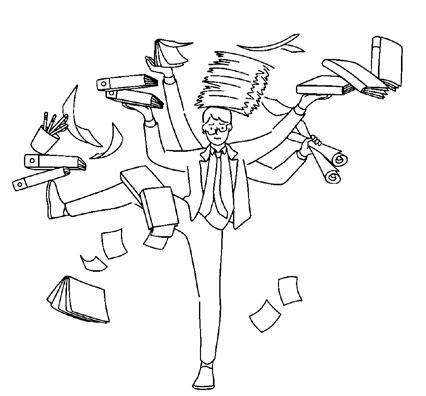
2 minute read
HEALTH HAS TO BE EARNED
ROY DICKINSON, M. G. N. O.
These are wise and true words which, believe it or not, were uttered by the Chief Medical Officer of the Ministry of Health, Sir John Charles, in his 1952 annual report.
Advertisement
He did not mean, of course, that people should prescribe for themselves and pay for their fancies in wonder drugs, etc. Possibly a majority of people do far too much of that already — trying to repair in haste, by means of pills and potions, the consequences of old, unhealthy habits.
We eat things to our taste knowing that we shall probably “suffer for it later”.
We bolt belated meals and then hurry to catch trains.
We neglect our teeth until they ache, we smoke and drink too much, we refuse to take regular exercise and we neglect personal hygiene.
We are not strict enough concerning the handling of food in shops, canteens and restaurants, nor often, in regard to its storage and handling in our kitchens.
The only exercise taken by many people in sedentary vocations is in walking between homes, offices, cinemas, clubs and bus stops. They have “no time” for real exercise.
During the war, authorities in some areas were disturbed at the anxiety of parents to exchange children’s “green cards” for adult ration cards at the earliest possible moment. The children’s cards entitled them to orange juice and cod-liver oil; but a depressing number of parents preferred another tea ration!
The general attitude of the public to health seems to be one of lazy, hazy fatalism: “Those fated to be ill will be ill” — it is the job of state and doctors to step in them and cure them!
Undoubtedly, the state medical service has weakened the individual’s sense of duty to help personally in preventing disease. He leans too much on the strength of the physician, and needs, to learn to rely more on his own strength.
What is the answer? It is the realisation that to achieve top-level health, and retain it without any ache or a pain, means a radical change in our way of life — the realisation that good health has to be earned by the daily disciplining of our bodies and minds to more simple ways of life.
Give up that short, bus ride to your place of work, and walk instead. Spend part of your free time walking out in the country districts, if possible, breathing deeply of the comparatively clean air. Make a rule of trying to be in bed by 11 p.m. each night. Make a real effort to cut out tobacco and white sugar confectionery.
Select your foods from those which are rich in mineral salts and vitamins and which are unrefined, i.e., fresh fruits, raw or lightly cooked vegetables, wholegrain bread and crispbreads, honey, dried fruits such as prunes, figs, dates and raisins, with nuts, cheese and milk for protein and fats.
Eschew all white-flour products, overcooked fruits and vegetables, conventional sweet and milky puddings, pies, white-sugar products such as jams and sweets, and condiments such as sauces and pickles. Try to find time to lie flat on your back and relax for five minutes during the day, and you will truly earn a tremendous improvement in your health.
Until we have achieved real, live health we cannot enter fully into the joy of living.




